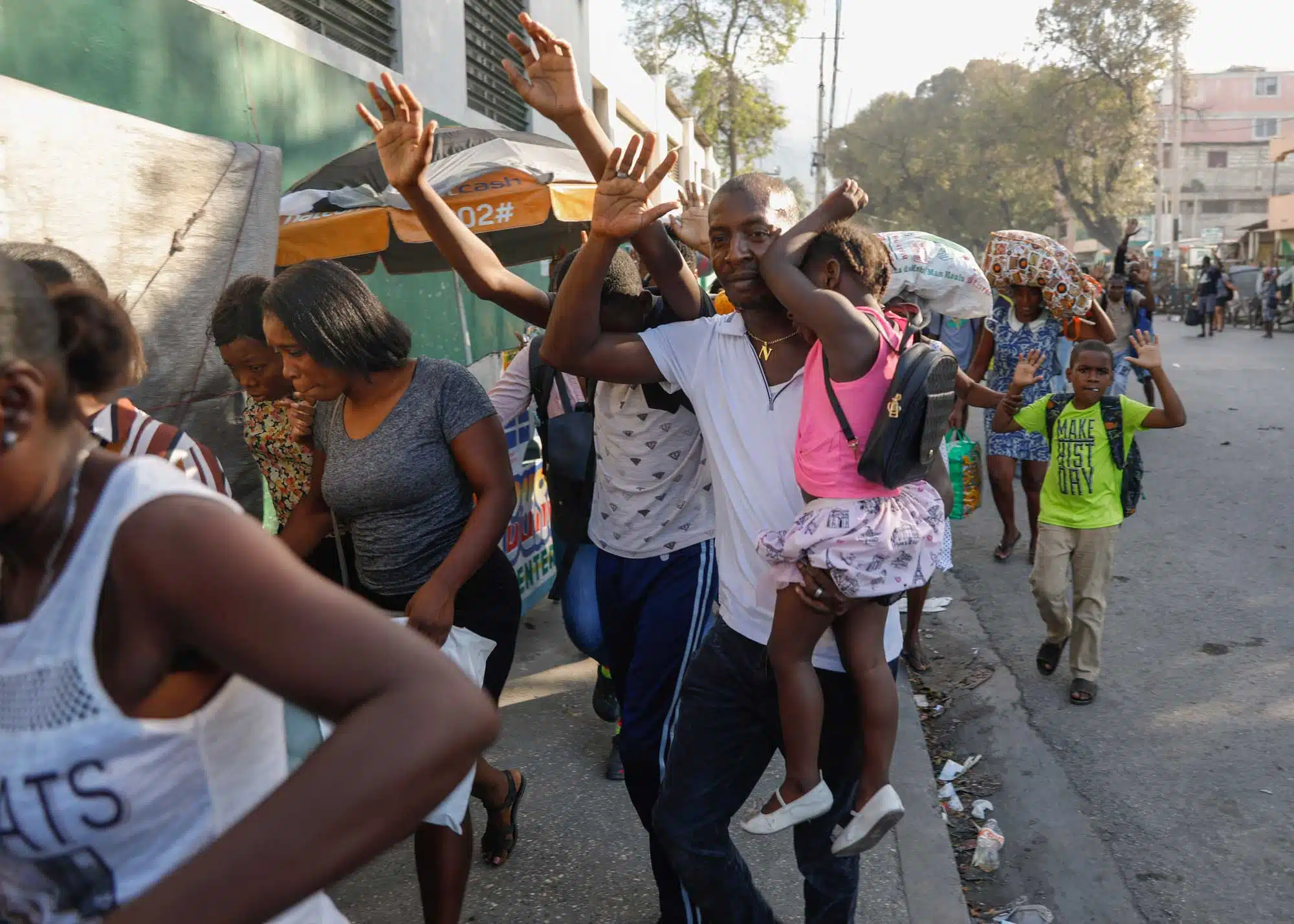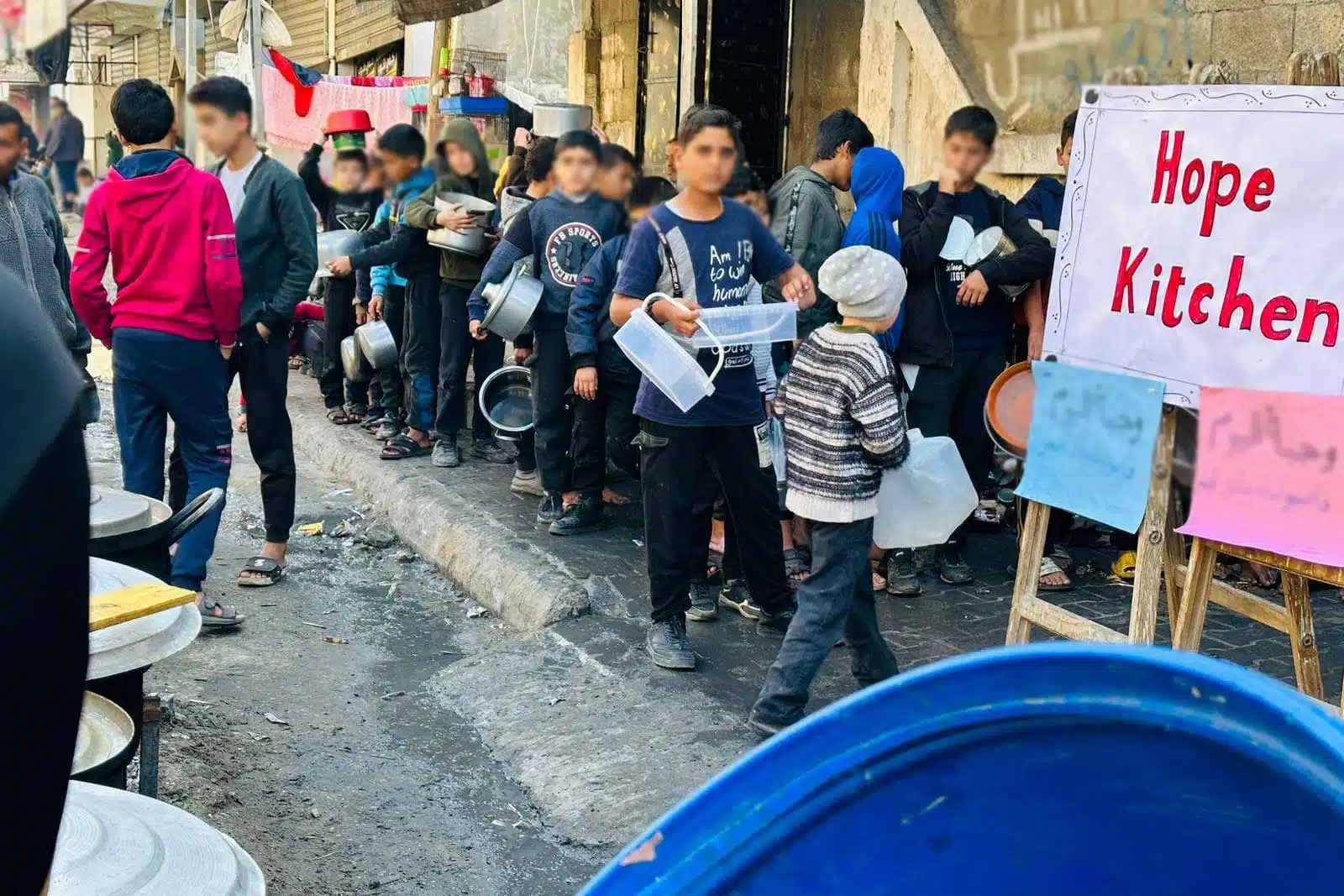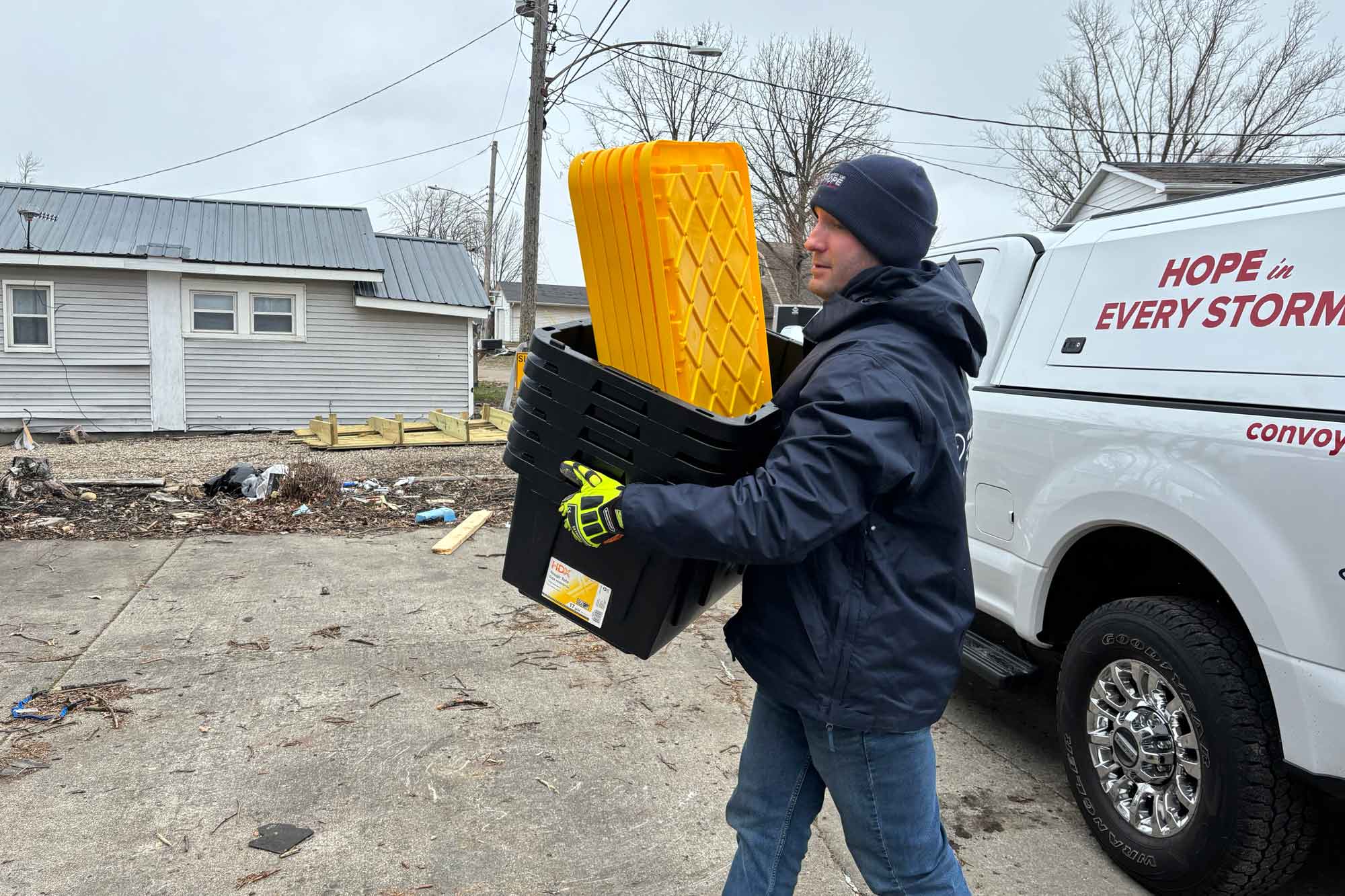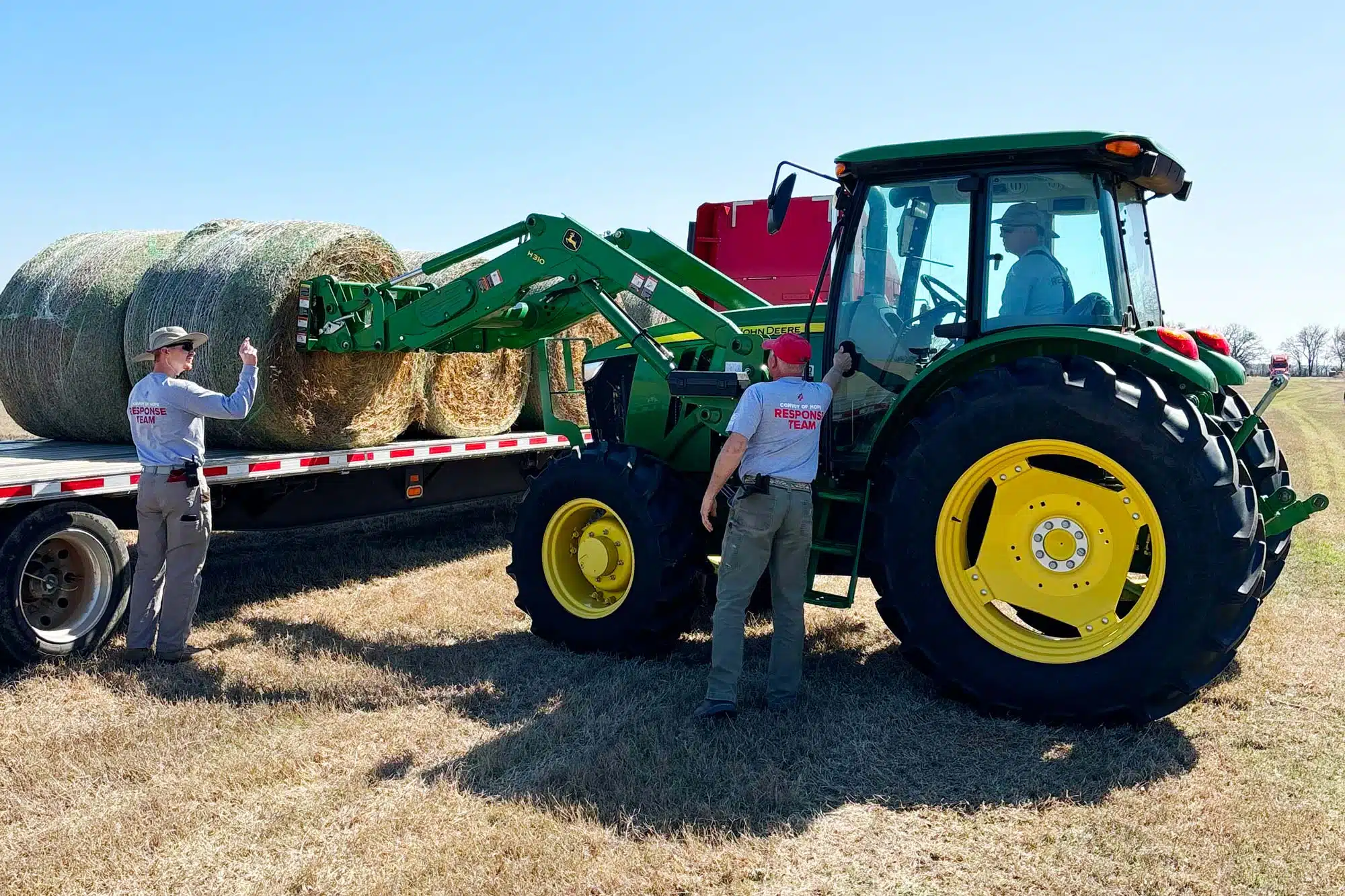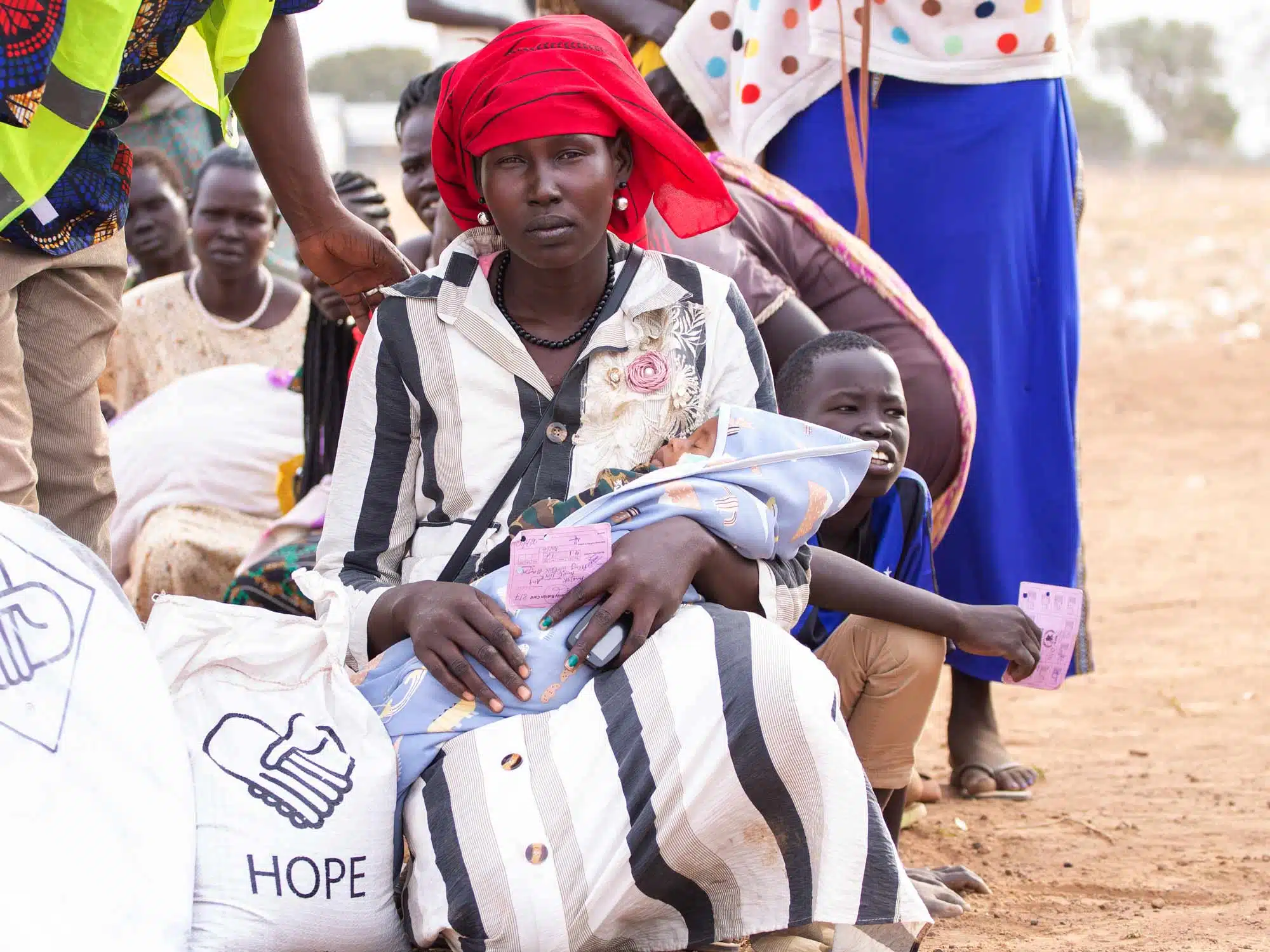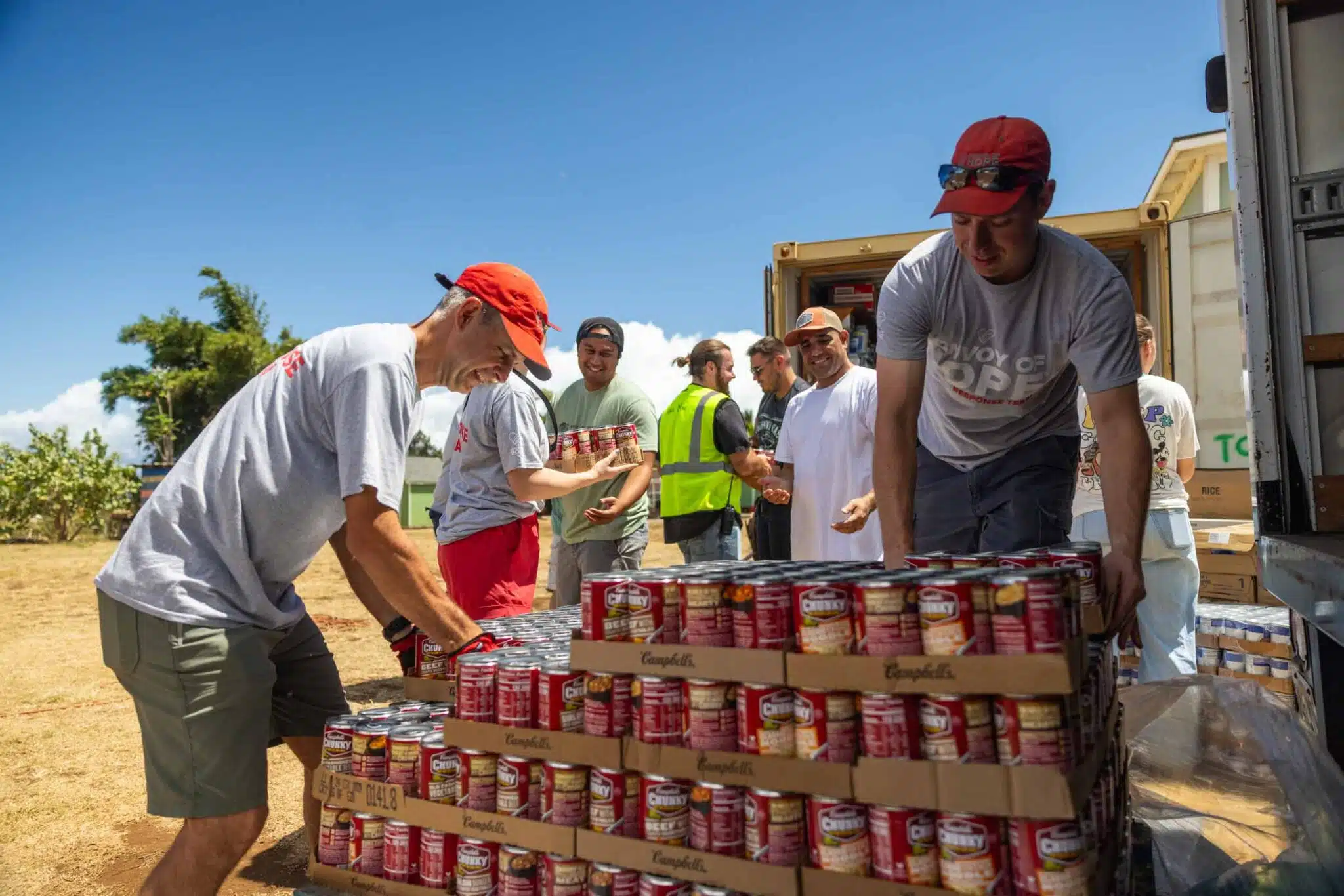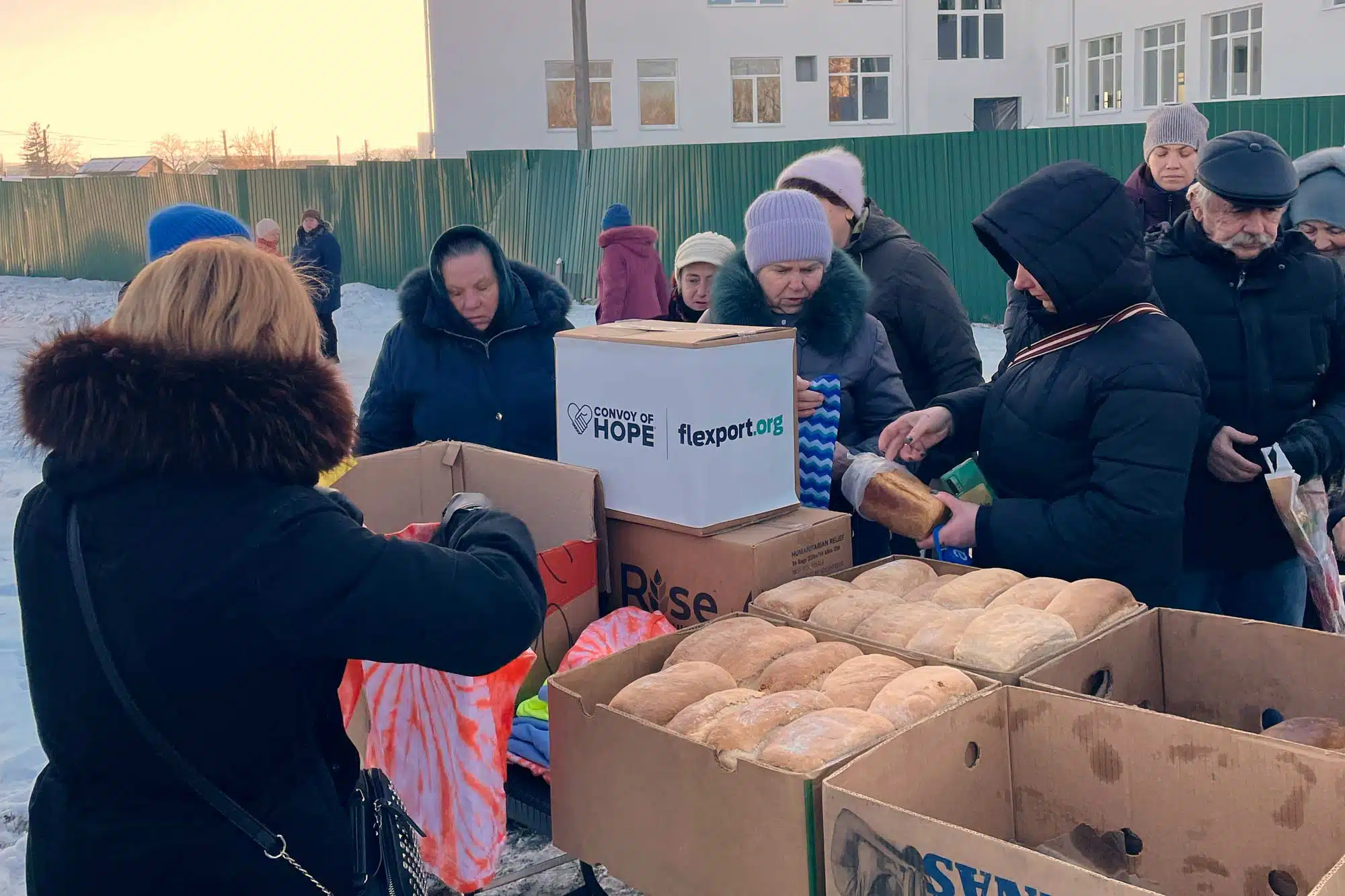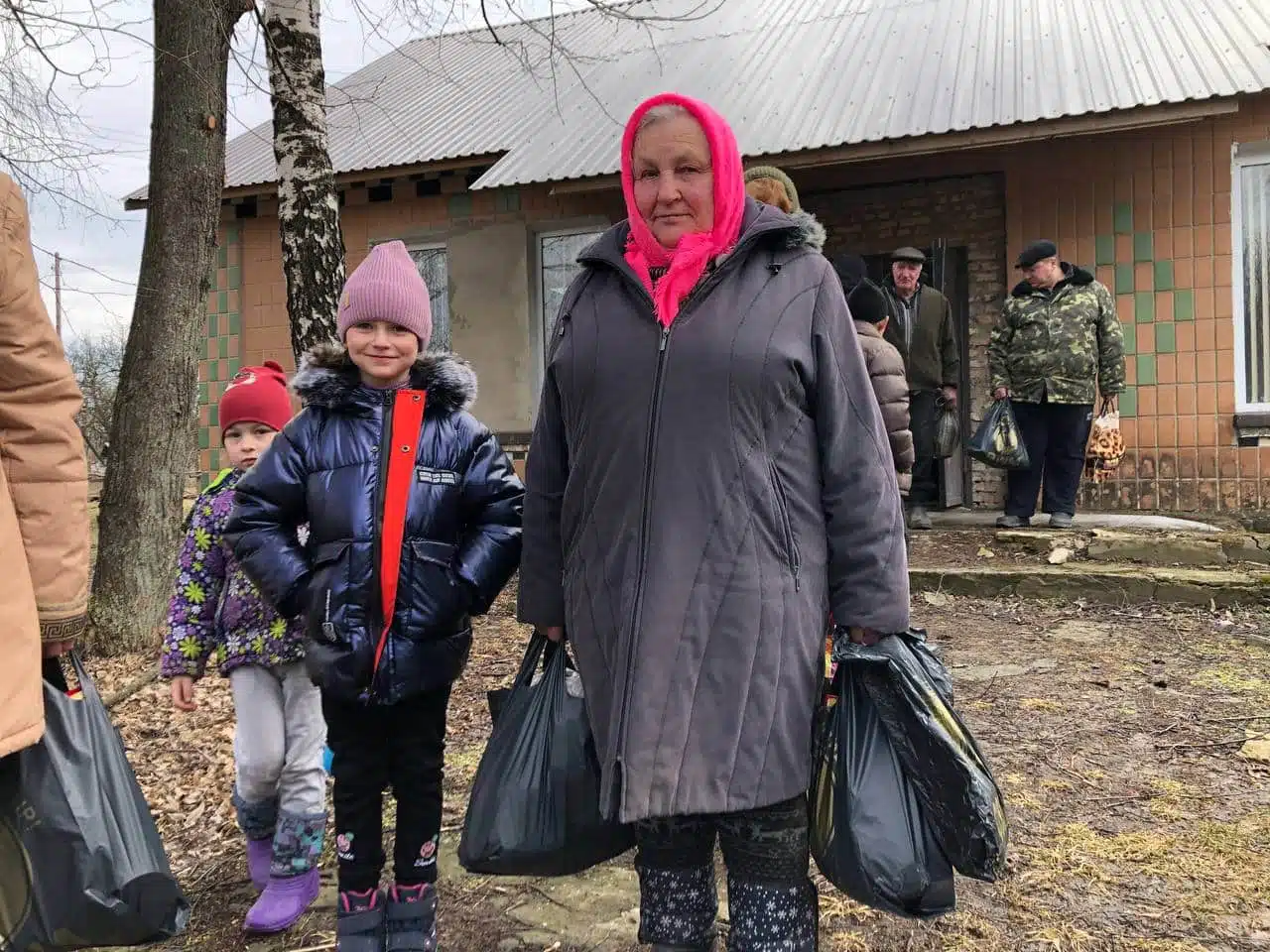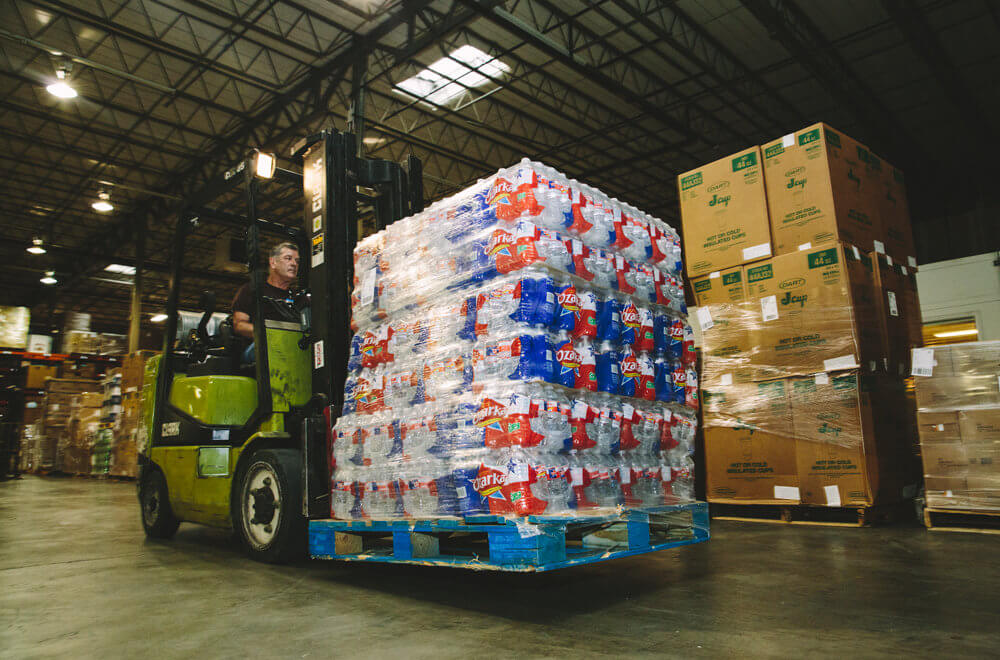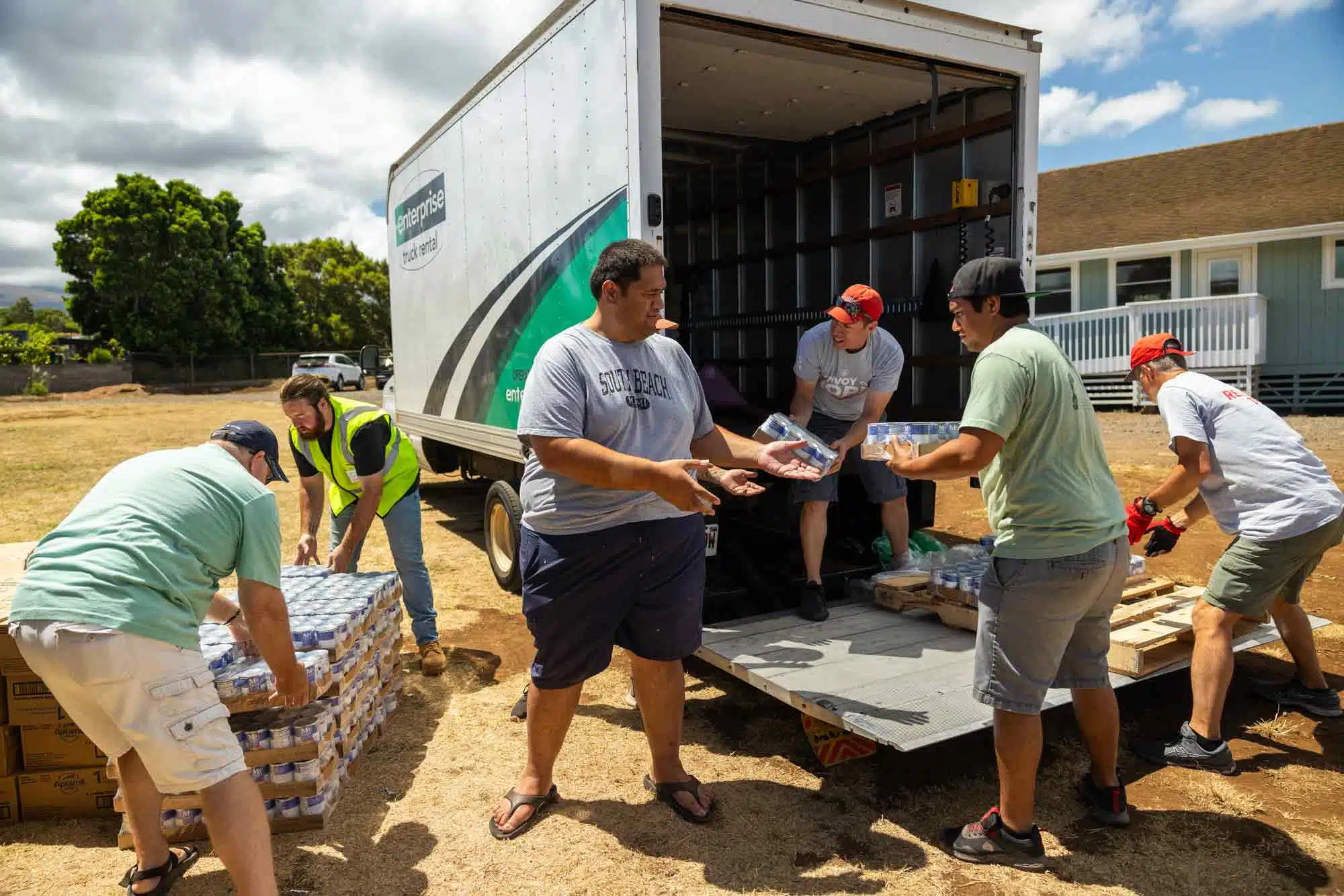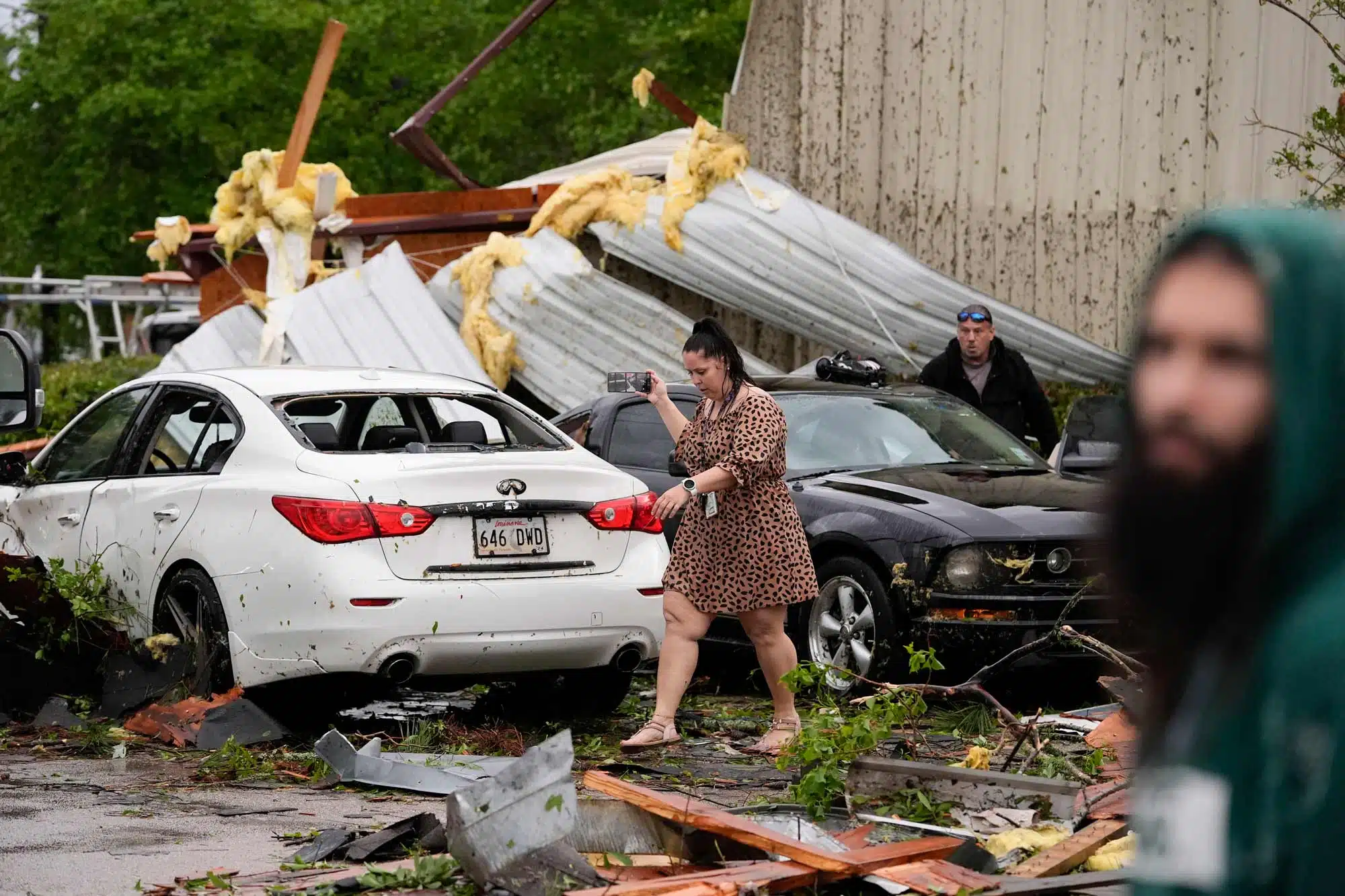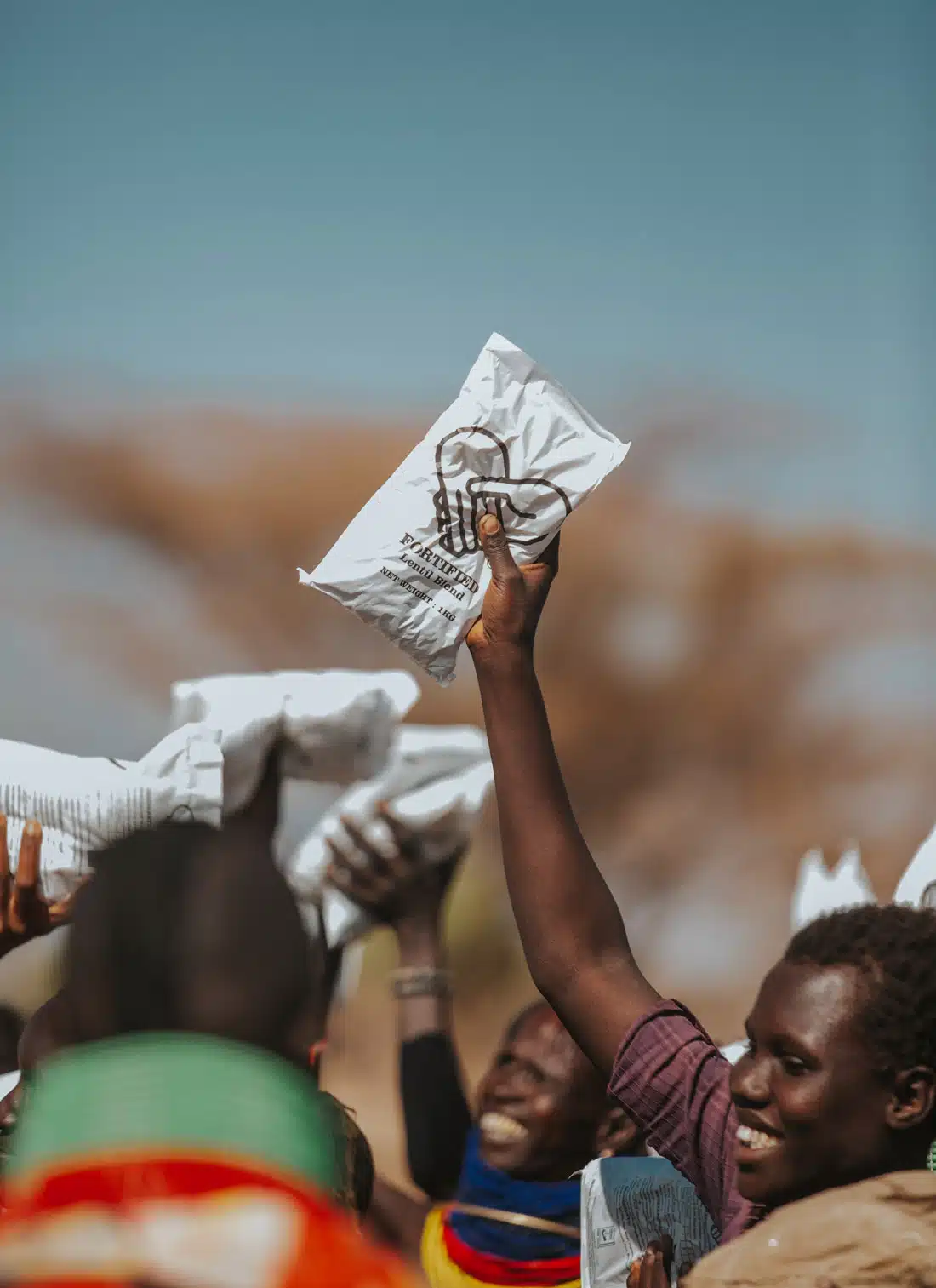
When Convoy of Hope team members arrived to distribute food at Locheresekon village in Turkana County, Kenya, they were met by a community filled with anticipation.
Turkana is one of the driest regions in the country. Convoy of Hope has been serving those in Kenya for years but even more so since the devastating drought has plagued the region. Many families in Turkana have lost their livestock, with milk production dropping to zero.
The morning of the distribution, men sat in a local church eagerly waiting for what happened next. Mothers tried to comfort their hungry, thirsty babies. Some had jerry cans, hoping to get water for the younger children, who carried small containers for food. School children in their uniforms sat on their school bags and others on jerry cans, patiently waiting to receive some food.
Convoy of Hope team members unloaded boxes and boxes of fortified rice-and-lentil food blends. There was enough food to feed all of those gathered that day. Convoy also sent bags of food home with those who came, ensuring that they had sustenance in the days that followed.
But Convoy didn’t just send them home with full stomachs. Team members sent those in the community home with the knowledge they needed to care for themselves in the future.
“We don’t do anything,” said community ambassador Lawreen Keta Achieng, referencing the cooking demonstration that occurred before the distribution. “We have the women do it so they can learn how to do it by themselves.”
The Convoy team also brings extra water for everyone to wash their hands with, emphasizing the importance of hygiene. Convoy’s integrated programming approach ensures that the people it serves aren’t just given hope for one day. Instead, the knowledge and skills they receive can help them thrive far into the future.
Here are the stories of a few people we served recently in Kenya.
A Fearful Farmer
Many of the residents are part of the Massai culture and rely on livestock for their livelihoods. When their livestock die, their income levels and food security plummet.
Taningo, a herdsman, searched for elusive pasture for his remaining livestock. All of them were too weak to lumber out to graze.
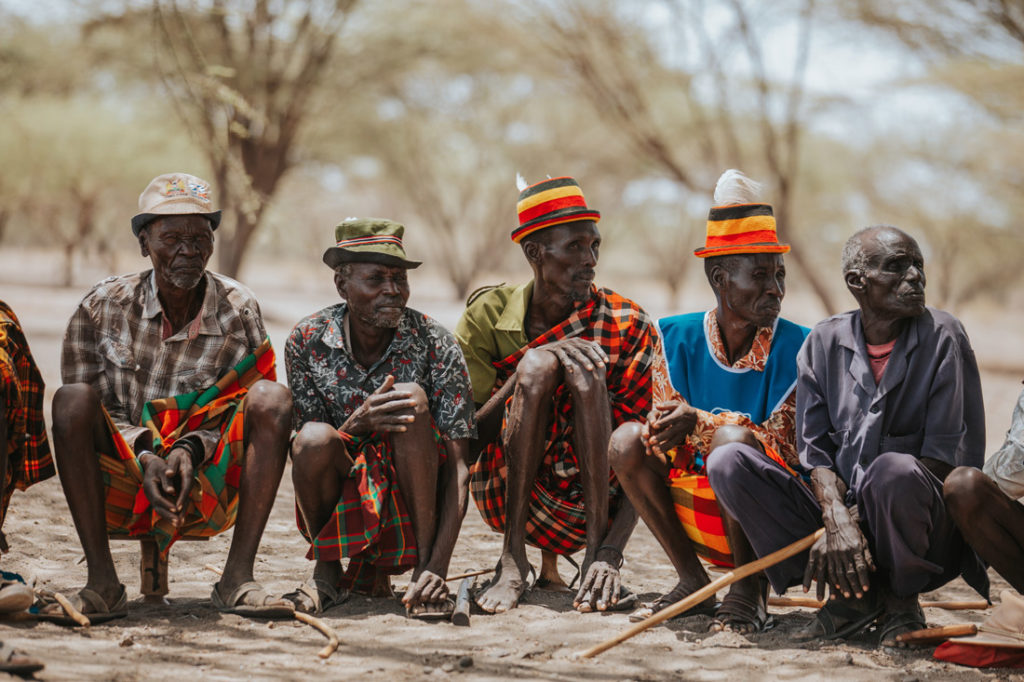
“The fields are full of carcasses and skeletons,” he said. “Our [settlements] are inhabitable due to the stench of death. We help each other transport carcasses from our homes.”.
On the day Convoy served Locheresekon, Taningo and his sons had just finished disposing of fresh cow carcasses from his sheds. “This is the order of the day. Our hope is that the heavens open up soon,” he sighed.
In such a dark hour, Convoy provided warm food to Taningo and his sons. Despite the heartache they were feeling, they were smiling as they ate. The day may have been discouraging, but knowing Convoy had a presence in their village made their future brighter.
A Worried Mother
Teresa came to the Convoy of Hope distribution to get relief food for her seven children. She has no formal education, but her Swahili is good nonetheless. She shared with the Convoy of Hope team that she was married at 17 but lost her husband six years later. She remarried but completely depends on her new husband for food. In turn, he depends on livestock, most of which have died in the drought.
“My youngest is three years old. But because of lack of food, I had to wean him early,” she explained. “We no longer have livestock, save for a few goats, so I have resorted to fetching and selling water or firewood to buy food.”
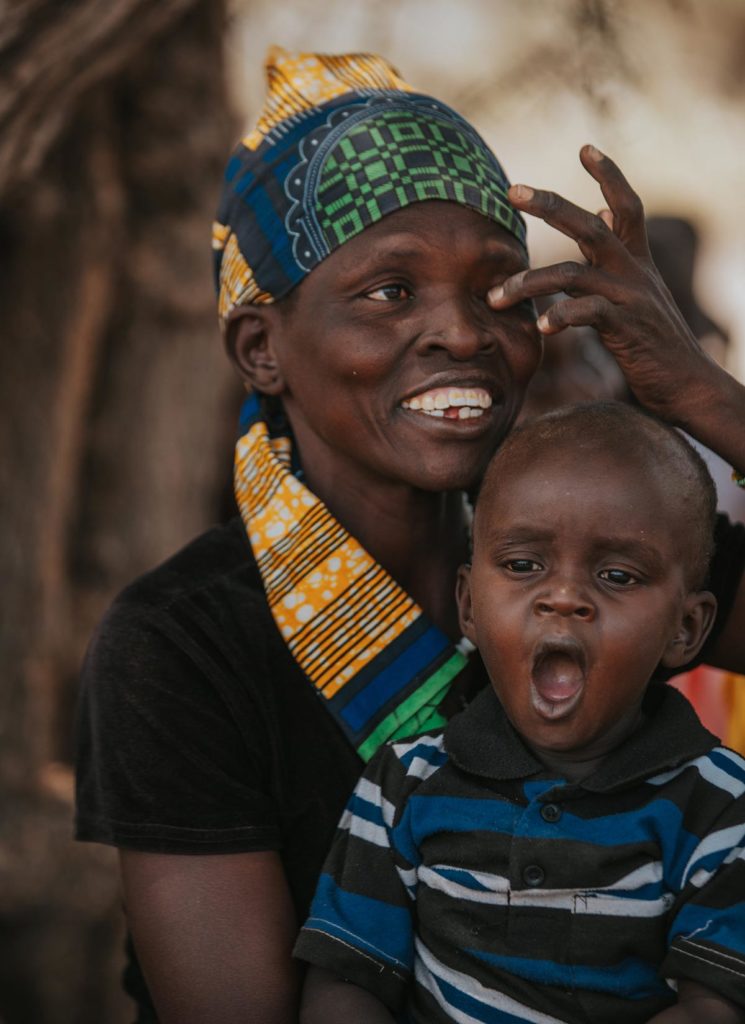
According to our partners in the region, malnutrition in children is at a critically dangerous level — nearly 14,000 children under 5 years old require treatment for severe malnutrition, and 50,700 more need treatment for moderate malnutrition. Children depend on school feeding programs.
The food Teresa received from Convoy of Hope allowed her to spend the money she earns on other vital things instead of purchasing food for her family.
A Lonely Widower
As the community’s ambassador, Lawreen knows that the elderly are particularly vulnerable. “They can’t physically get up and go looking for food. A lot of them will sit in their house and, if a neighbor remembers them, they’ll bring them food.”
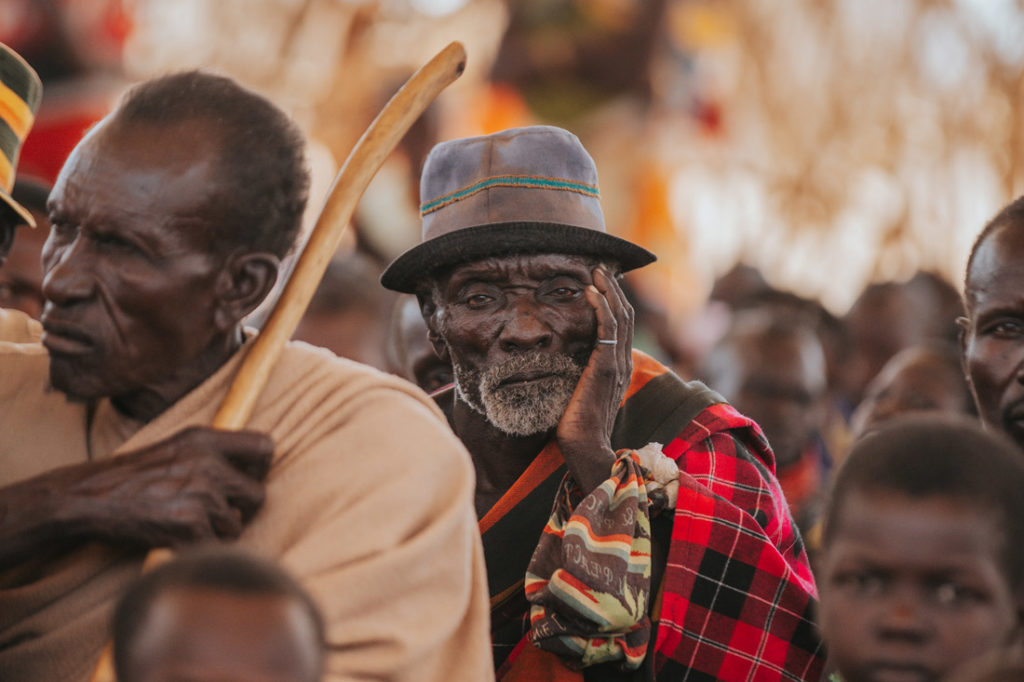
Charles is in his 60s and lost his wife earlier this year. Following her death, their children left home to fend for themselves. The 60-year-old’s eyes glisten with grief as he narrates how he was unable to get enough food for the love of his life in her last days.
“Before my wife died, she had stayed hungry for a week. And even when I went to beg for food from neighbors, it was never enough. On the day she died, we were together in the house, and I watched her breathe her last. I have no wife to care for me. The drought is still here, and I sometimes have to go to people’s houses to beg for food. Sometimes, my neighbors sympathize with me and invite me for a meal. Since her death, I have been unable to sleep.”
Whenever he found food, he took it to his daughter to cook for him. If there was no food, Charles would go to bed hungry.
That night, he went to bed full.
A Commitment to the Sahel
Africa’s Sahel region has suffered from drought and malnourishment for years. Years ago, before famine was imminent in the region, Convoy of Hope committed to serving those living in this region to combat the looming hunger crisis.
And now, as drought grips the Horn of Africa as well, Convoy is resolute in helping vulnerable people across the continent.
“These people are stuck,” Lawreen lamented, her voice full of emotion. “There’s really no solution living out there in the middle of nowhere. Having this food genuinely gives them hope to live another day.”
Convoy of Hope is acting now — in Africa, and around the world — to move children and communities from food insecurity into healthy and fulfilling futures.
